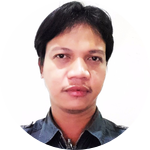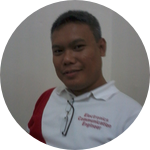About This Project
Electronics Engineering students of the Eastern Visayas State University, Philippines, are the ones commonly using the chemical etching process for their laboratory experiments and projects. This experiment is aimed to study the effectiveness of using coconut husk as an alternative low-cost adsorption agent that can be used to remove copper residue found on the spent ferric chloride solution used by the students.
Ask the Scientists
Join The DiscussionWhat is the context of this research?
As a faculty of the Electronics Engineering Department of the university, I handled courses on design and supervised students to do laboratory activities in relation to the topic we were discussing. Part of these activities require students to do PCB etching for the component assembly of their projects. As I observed, every time we do these etching procedure, it becomes our problem how to dispose the spent ferric chloride solution used as a result of the etching process. Although there are commercial adsorbents available in the market, the university is not capable of purchasing such because of its high price.
What is the significance of this project?
Pure ferric chloride solutions are not hazardous to the environment. But ferric chloride solutions used as an etchant, containing copper residue, is hazardous to the environment as the allowable copper content for the environment is 5ppm only. Copper content from spent ferric chloride reaches up to 10,000ppm which is way too high to the acceptable level. With coconut husks acting as copper adsorbent, this will greatly reduce copper contamination to the environment once the solution is disposed. Also, since coconut husks are abundant in our place as a waste product, this research will help the environment by recycling waste materials into a product which will likewise minimize the chemical (copper) discarded into the environment.
What are the goals of the project?
The most important output from this experiment is to know whether or not coconut husk can be used as an alternative adsorbent for school use. If the result is favorable, a customized filter using the husks as adsorbents can be manufactured for the specific purpose of filtering the copper residue from the spent ferric chloride used by the students. During the experiment, a minimum of 10 samples will be collected which will be differentiated from multiple parameters (contact time, freshness of the husks, flow rate, etc.). The result of the copper concentration testing method will determine if coconut husk is a good alternative.
Budget
A large portion of the requested fund is for the chemical testing fees for the samples that would be taken from the experiment. A planned 10 sample sets are considered for better enhancement of results. The testing fees are charged per sample analyzed.
Other part of the budget will be allocated for the laboratory materials to be used. A part in this fund is for the purchase of the ferric chloride solutions, including shipment.
A part of the incidental expenses will be for travel costs for the collection of the adsorbents to be used. Also, stipend for some helpers will be included here.
Endorsed by
Meet the Team
Chito Petilla
An Electronics Engineer finishing up his Masters in Engineering Program. He is planning of pursuing Ph.D. in Environmental Engineering.
Project Backers
- 3Backers
- 4%Funded
- $64Total Donations
- $21.33Average Donation

